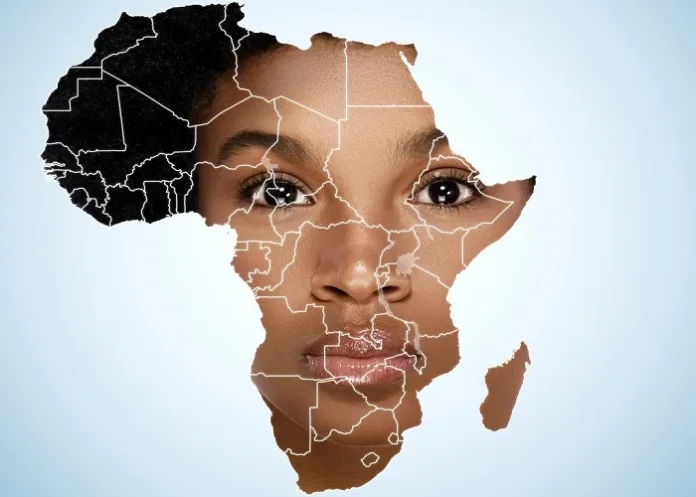Scientists have found that a different form of a gene called CHD1L – found in people with African ancestry – has been linked to lower HIV levels in infected people, and could open the door to improved treatments.
This genetic variant may offer them considerable protection against HIV, according to the research, and lead the way to improved treatments for infection among these populations.
Unique to people with African ancestry, up to 13% of such people are thought to have this variant, reports New Scientist.
In people with HIV, the viral loads of those with this version of the gene are 20 times lower than those of people who are also of African ancestry, but lack the variant. As a result, the former have slower HIV progression and a reduced risk of transmitting the virus, said Harriet Groom from the University of Cambridge, who was on the research team.
This is the first time a genetic variant related to HIV has been found in three decades, she added, and is particularly significant because it is specific to people with genetic ties to Africa, where most of the world’s HIV cases are found.
Advances in treatment have reduced the spread of HIV since it was discovered, however, the virus easily mutates and evades the effects of drugs.
Most genetic research on HIV has focused on people of European descent, which led to the discovery of variants associated with a reduced viral load about 30 years ago. Those variants, found on two genes known as HLA and CCR5, account for about 15% of the differences in HIV viral loads among people of European ancestry.
Now, Paul McLaren at the National Microbiology Laboratory in Canada, Groom, and colleagues, have compared the DNA of 2 682 men and women of African ancestry, most of whom were African Americans. All were positive for HIV-1, the most common form of the virus.
The researchers found that the participants’ viral loads were somewhat associated with variants on the HLA gene, but not the CCR5 gene. However, unlike in people of European ancestry, they also found a relevant variant in a different gene, known as CHD1L.
This gene is in a region of chromosome 1 that is known for encoding proteins involved in DNA repair, said Groom. All humans have this gene, but only people of African ancestry carry the newly discovered variant.
To confirm their findings, published in the journal Nature, the researchers searched for the CHD1L variant in an additional 1 197 people of African ancestry with HIV-1 in multiple countries. They found that those who have the variant – an estimated 4% to 13% of people of this ancestry – have significantly lower viral loads when infected with HIV-1.
Wanting to understand how the variant affects HIV loads, the scientists experimentally switched it off in genetically modified human immune cells in the lab, before exposing them to HIV-1.
Over many trials, the team found that the virus replicated much more in one type of immune cell – macrophages – when the variant was switched off than when it wasn’t. Surprisingly, however, that wasn’t the case for another type of immune cell, T-cells, even though these are thought to be where most HIV replication usually occurs, Groom said, adding that more research could shed light on the role of macrophages in HIV replication.
Combined, the findings could, over time, lead to more-targeted management and treatment of HIV in people of African ancestry, the authors believe.
Study details
Gene variant that seems to protect against HIV may lead to new drugs
Paul McLaren, Immacolata Porreca, Jacques Fellay et al.
Published in Nature on 2 August 2023
Abstract
HIV-1 remains a global health crisis, highlighting the need to identify new targets for therapies. Here, given the disproportionate HIV-1 burden and marked human genome diversity in Africa, we assessed the genetic determinants of control of set-point viral load in 3 879 people of African ancestries living with HIV-1 participating in the international collaboration for the genomics of HIV. We identify a previously undescribed association signal on chromosome 1 where the peak variant associates with an approximately 0.3 log10-transformed copies per ml lower set-point viral load per minor allele copy and is specific to populations of African descent. The top associated variant is intergenic and lies between a long intergenic non-coding RNA (LINC00624) and the coding gene CHD1L, which encodes a helicase that is involved in DNA repair. Infection assays in iPS cell-derived macrophages and other immortalised cell lines showed increased HIV-1 replication in CHD1L-knockdown and CHD1L-knockout cells. We provide evidence from population genetic studies that Africa-specific genetic variation near CHD1L associates with HIV replication in vivo. Although experimental studies suggest that CHD1L is able to limit HIV infection in some cell types in vitro, further investigation is required to understand the mechanisms underlying our observations, including any potential indirect effects of CHD1L on HIV spread in vivo that our cell-based assays cannot recapitulate.
Nature article – Gene variant that seems to protect against HIV may lead to new drugs (Open access)
See more from MedicalBrief archives:
Challenges in developing ‘vital’ HIV vaccine
Six HIV vaccine research projects under way globally
Dipping in the African gene pool

